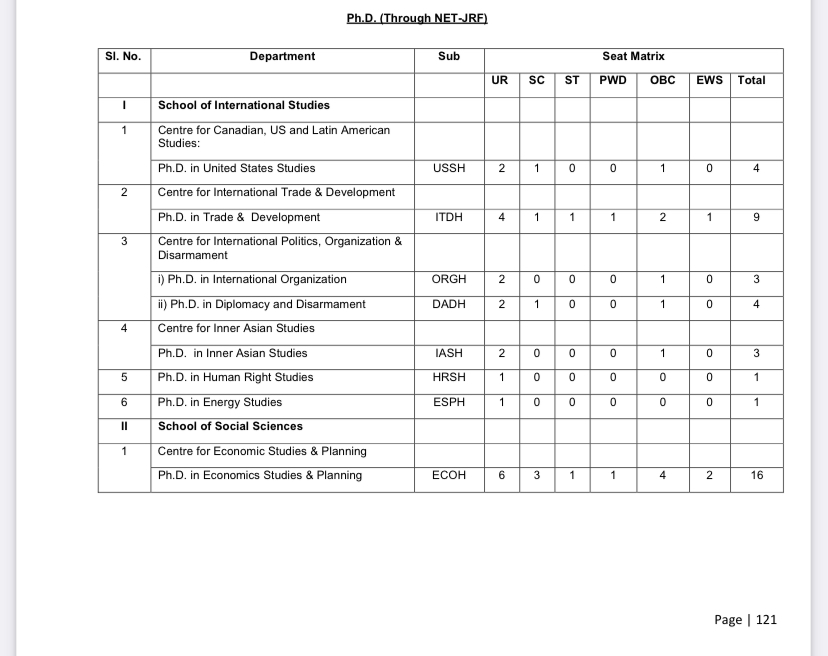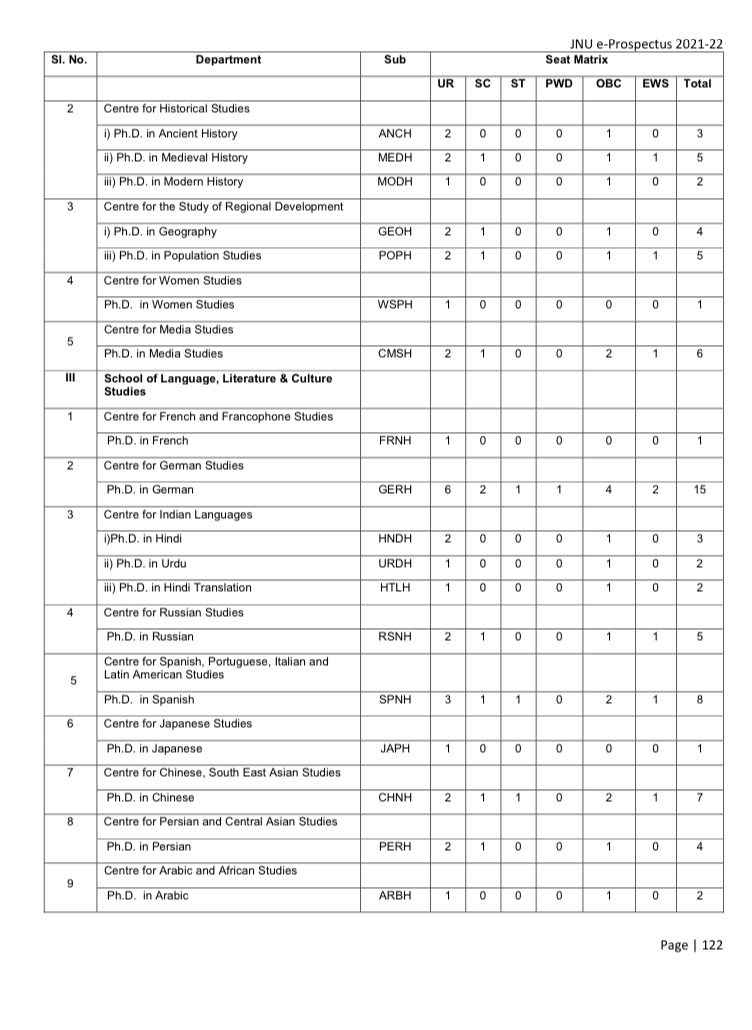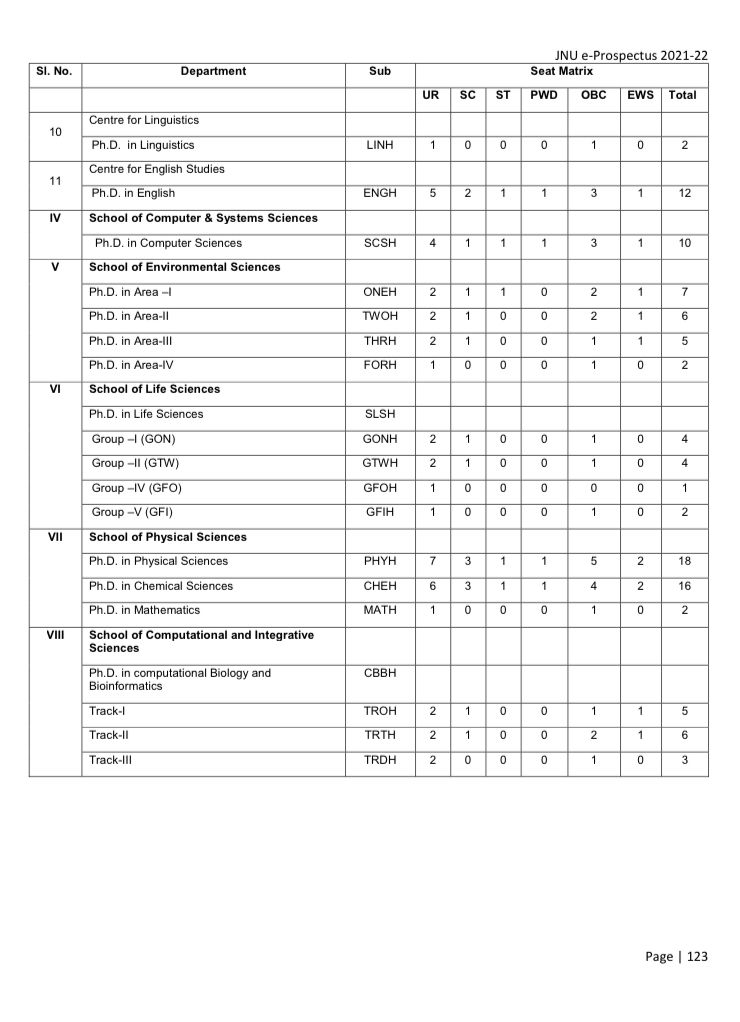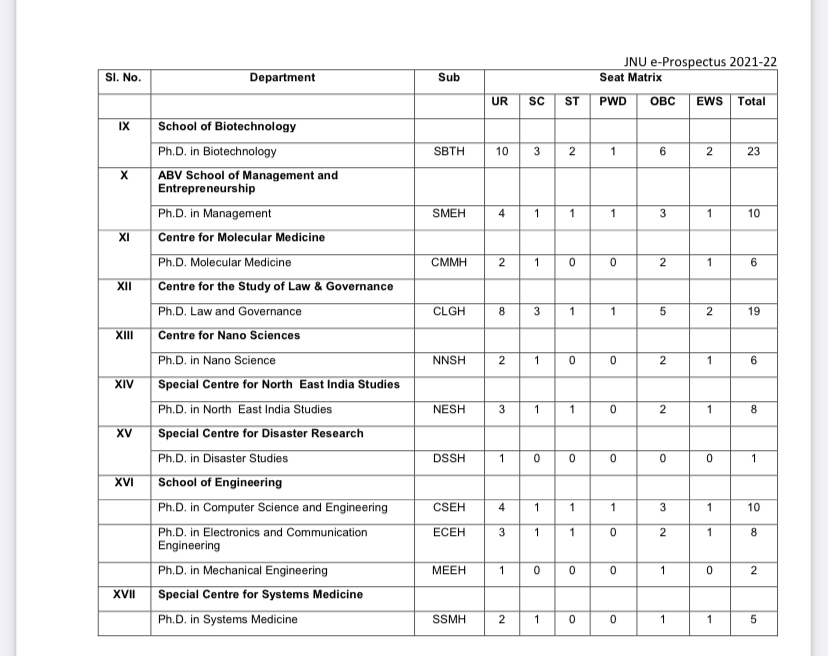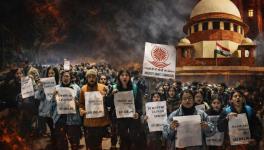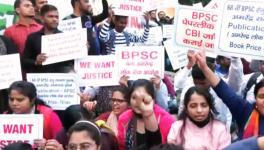With New Diktat, It’s Now Way Harder for Poor Students to Get PhD Admissions at JNU
The aspirants for admissions in the country’s premier research university, Jawaharlal Nehru University (JNU), are finding themselves in a fix after it released a new prospectus for admissions for the current session. The enrolled students aspiring for PhD admissions maintain that the proposed scheme of things makes it impossible for them to secure admissions as the university has reserved all seats in several centres exclusively for the candidates who qualified for Junior Research Fellowships (JRF) under the National Eligibility Test conducted by the University Grants Commission (UGC).
A student, who requested anonymity, said that even though some Centres have not completely reserved seats for NET JRF, they are dependent on the National Testing Agency, which does not follow the recommended syllabus for questions. He said, “There is no uniformity. They decide randomly what they would ask!”
The office-bearers of the Jawaharlal Nehru University Students Union (JNUSU) suggest that the proposals are not discriminatory but they hit the candidates from marginalised communities. Talking to NewsClick, Aishe Ghosh, President of JNUSU, said that the university shut its gate on the faces of those who once thought of the institution as a sole gateway to higher education and upward social mobility. She said, “We have seen that a poor boy from Bhagalpur could come here and study without much hassle of fee or otherwise. Now, you are asking the boy to make a long leap enough to accommodate himself to studies, which are generally in English, then prepare himself for an exam which only a minority of students passes because they own all resources. It cheating them.”
Ghosh added that the requirement for passing of NET-JRF has been coupled with 100% marks through viva voce and the experience within the University has largely been bitter for SC, ST and women students. “We observed that the examiners interviewing the students were discriminating against them. If a teacher did not like a student because of his preconceived notions, the student could be knocked out easily. The written examinations prevented such things by ensuring that the students had marks in their hands,” she said.
When asked if she feared that the university was returning to old days of protests as seen during the anti-fee hike agitation, she replied, “Currently, we are in talks with the administration and the UGC officials to get it resolved. But I think it is important to note that we may have succeeded in stopping the fee hike for Indian students, but that is not the case with international students. They are being compelled to pay $1500 per semester if they wish to study here. Again, it is based on a wrong assumption that every international student who comes to the university is rich. There are students who apply for scholarships through ICSSR. Now, they are increasing the fee further by $200 per semester.”
Citing an example, Ghosh said that the Centre for Study of Law and Governance released 19 seats for admissions and all are reserved for NET JRF qualified candidates. A summary look at the prospectus suggests that at least four centres -- Centre for Women Studies, Centre for Indian Languages, Centre for Studies in Law and Governance and PhD in Engineering -- have been largely affected.
Moushumi Basu, who teaches at the Centre for International Politics, Organisation and Disarmament told NewsClick that the centres in question have not been comfortable with how the university decided matters regarding entrance and admissions.”The changes you are seeing in the prospectus are largely due to the conduct of the university in previous years. We had autonomy in setting up the papers, checking the papers and other processes. Now, in 2019, the university said that the teachers will have to prepare multiple choice question papers for admissions. Next year, they scrapped it and went to the National Testing Agency which would be doing everything from preparing the question papers to declaring the results. Now, the centres were not happy with NTA route. Nowhere in the world PhD candidates are admitted on the basis of their MCQ marks. So, they went through the NET JRF route, which narrows down the process of selections and there would be some quality in academics.”
When asked if she was concerned over the diversity and profile of students intake, she said, “The problem is we do not have students from mofussil centres and they are from urban and metropolitan cities like Delhi, Hyderabad and Kolkata among others. So, the students who once thought they could study here despite their poverty are completely missing. They simply struck down the deprivation points, which encouraged girl students and students from remote areas. And it completely eroded the inclusive legacy of the university.”
Get the latest reports & analysis with people's perspective on Protests, movements & deep analytical videos, discussions of the current affairs in your Telegram app. Subscribe to NewsClick's Telegram channel & get Real-Time updates on stories, as they get published on our website.









